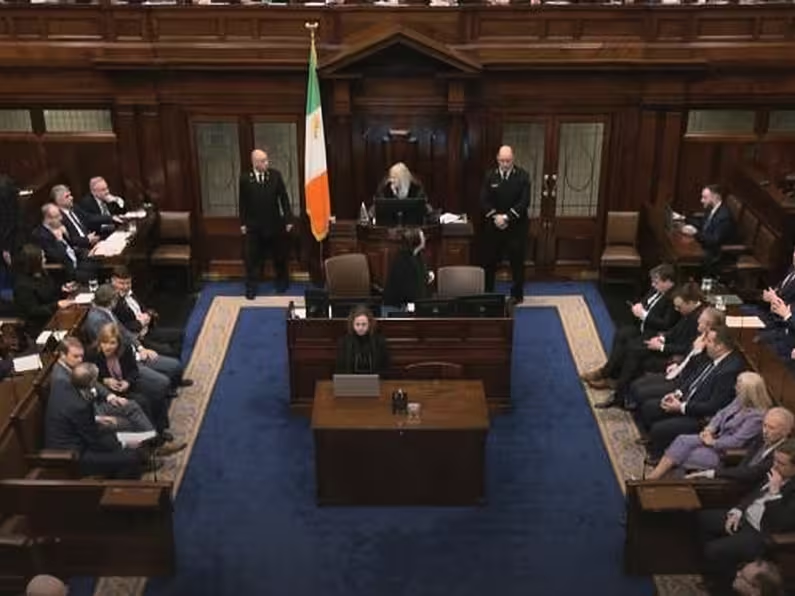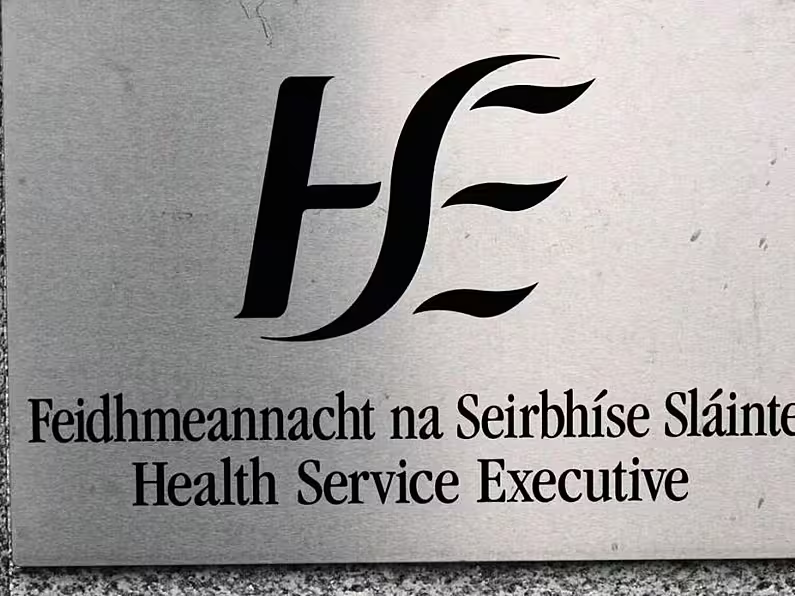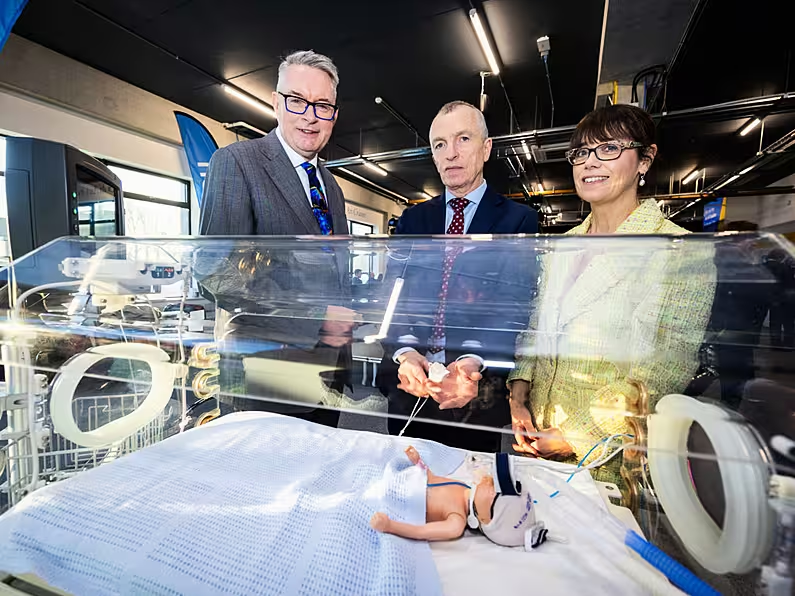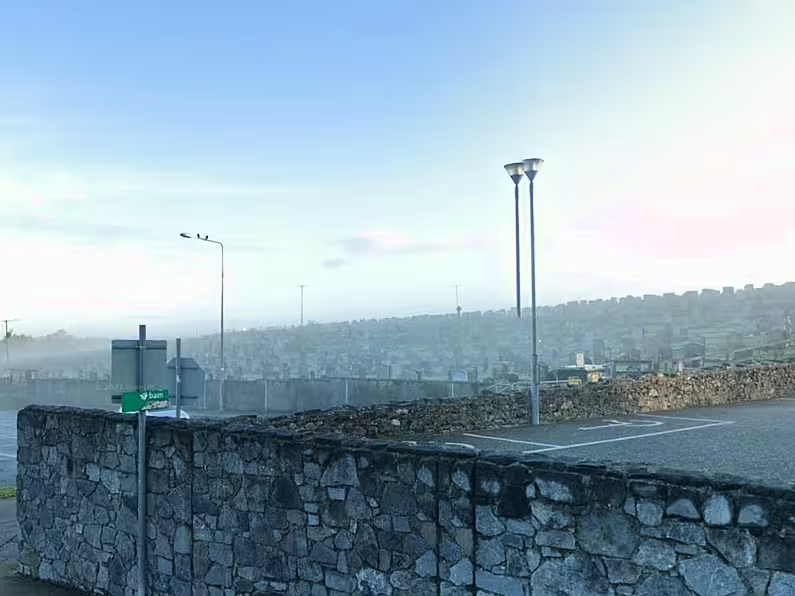James Cox
Sinn Féin's popularity is constantly growing while Fianna Fáil and Fine Gael take hit after hit in the polls as the pandemic continues along with pre-existing problems like housing and healthcare.
The latest poll, from The Sunday Times/Behaviour & Attitudes, showed a six-point jump for Sinn Féin to 37 per cent approval. Fine Gael's standing remains unchanged at 21 per cent, while Fianna Fáil have dropped 3 points to 20 per cent.
Professor Gary Murphy, of Dublin City University's school of law and government, and Professor Aidan Regan, of the school of politics and international relations at University College Dublin, spoke to BreakingNews.ie about the likelihood of Sinn Féin leading the next Government and the challenges they may face.
While both Prof Murphy and Prof Regan felt it is highly likely Sinn Féin will win the most seats in the next general election, they pointed to a number of issues the party will face in forming a Government.
Poll numbers
"While there’s been a great consistency in their poll numbers, the 37 per cent last weekend, things can change. That’s the context of my reticence of saying that they certainly will be in government," Prof Murphy explained.
"Having said that all the indicators are that they’re going to get over 30 per cent of the vote in the next election, that will leave them the biggest party in the Dáil by far and will then give them the opportunity to try and form a Government, but I think that will have its own problems."
"If there was an election tomorrow and those polls translated into seats then clearly Sinn Féin would be in a very strong position to lead the next Government," Prof Regan said.
While there have been a number of issues with the Fianna Fáil/Fine Gael/Green Party coalition, Prof Murphy and Prof Regan both felt the current Government will last for a number of years, and possible until the next scheduled general election in 2025.
With Sinn Féin's popularity growing constantly, they both pointed out that the longer the current Government lasts, the better for the parties involved.
Housing crisis
"The longer the Government goes on and if things were to change, if they were to get a grip of the housing crisis and the health crisis and if Covid was to disappear (although I don’t see that happening), some people might be doing reasonably well in 2024 or 2025 who might say ‘well, let’s stick with the Government’, one can never really tell but all the indicators currently are that Sinn Féin are dominating so much that it will get over 30 per cent, 37 per cent would get them closer to 70 seats which would be extraordinary.
I think the Government has fundamentally lost the confidence of the electorate particularly when it comes to solving the housing issue.
"What I would say is the longer the Government lasts, the better for them. The big question will be how does the Government break up, and how will Fianna Fáil and Fine Gael fight the next election as separate parties fighting for the same seats," said Prof Murphy.
"The point I would make is there is still a lot to play for."
Prof Regan feels the current Government will struggle to regain a lot of the support it has already lost with the electorate.
"I think the Government has fundamentally lost the confidence of the electorate particularly when it comes to solving the housing issue and I just don’t see them getting that back."
"I don’t think the Government are going to get anywhere close to solving that issue in the next 12 to 24 months. Furthermore, I don’t think the issue is likely to be solved in the next 36 to 48 months, so I think the same issues that face the Government will also face Sinn Féin, and they will not be able to mobilise labour capacity to get the finance to where it needs to go to get the planning permissions and basically to release and construct the amount of homes that is fundamentally necessary to match existing demand, so it’s a really complex issue.
"The electorate is more likely to forgive Sinn Féin on this issue because they will not see them as responsible for the policies that led to the situation over the past 10-15 years, so in that sense I think the election will perhaps be a little more forgiving of Sinn Féin and give them a little more time, but I think the voters have already voted with their feet on housing."
Left-wing coalition
Sinn Féin's likely preference for a Government would be a left wing coalition looking to the likes of Labour, the Social Democrats, and even the Green Party. Independent TDs will also have a role to play.
"Fine Gael got 76 seats in 2011 on 36 per cent of the vote; let’s say Sinn Féin get something in the region of 32 per cent, that would get you 60 odd seats, you’d then have to find another 20 seats to form a stable Government," Prof Murphy explained.
Both Prof Murphy and Prof Regan pointed out that Sinn Féin would have trouble trying to do business with any of the far-left parties such as People Before Profit.
"I personally don’t see the far-left going into Government, I don’t think they have any interest in being in Government," Prof Regan said.
Negotiating with a number of parties is also difficult and both Prof Murphy and Prof Regan feel there will be difficulties in trying to form a left coalition.
Prof Murphy pointed out that Sinn Féin may end up taking seats from the left wing parties mentioned.
The other route, which would prove equally challenging, would be a coalition with Fianna Fáil.
Both Prof Murphy and Prof Regan pointed out that this will not happen while Taoiseach Micheál Martin is at the helm of the party.
While some Fianna Fáil TDs have publicly and privately indicated a willingness to work with Sinn Féin, Prof Murphy said it would be very difficult.
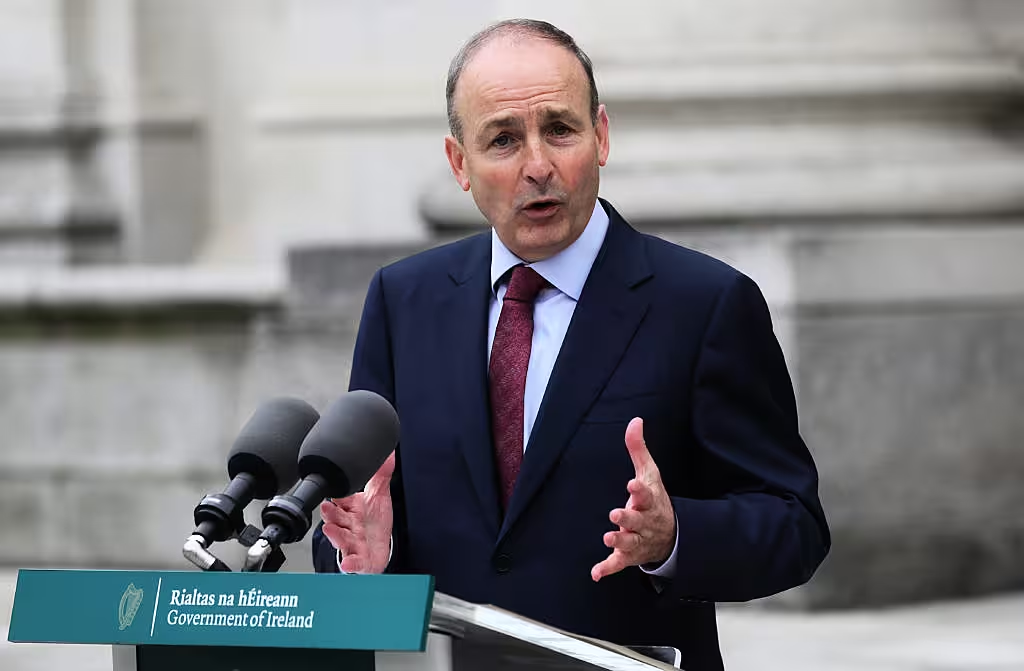
Fianna Fáil would not even consider a coalition with Sinn Féin under current Taoiseach and party leader Micheál Martin.
"The trouble then for Sinn Féin is that if they can’t cobble together a Government there, then you’re left with Fianna Fáil and Fine Gael and I simply cannot see in any way, shape or form how Fianna Fáil will go into a minority Government with Sinn Féin.
"We know that minority parties struggle in Government, it’s a historical fact. The Greens in 2011, the Progressive Democrats over the years, Labour particularly in 2016.
"I just have a hard time seeing any Fianna Fáil leader going into Government with Sinn Féin as a minority party.
"Let’s say they got much the same number of seats, then you could have some Government like the current Fine Gael/Fianna Fáil/Green Government, that might entice Fianna Fáil to go into Government with Sinn Féin, but again I wouldn’t be putting any great money on that.
"Micheál Martin's sort of antennae politically is anti-Sinn Féin, also there’s a tremendous and clear dislike between himself and Mary Lou McDonald. I just couldn’t see Fianna Fáil going into coalition with Sinn Féin under his watch.
Would Fianna Fáil want to be back in Government as a minor party? I’m not sure.
"If it’s a new leader, do you want to be the first Fianna Fáil leader to go into Government as a minor party? It’s a bit like Fine Gael in 2020, plenty of people in the party said they should have stayed out of Government. Would Fianna Fáil want to be back in Government as a minor party? I’m not sure."
Both Prof Murphy and Prof Regan felt a Sinn Féin/Fine Gael coalition would be a non-runner.
While Prof Regan acknowledged it would be "extremely difficult" for Fianna Fáil to be a minor party in Government with Sinn Féin, he felt it could be possible with a new leader.
"It depends on who emerges in the leadership of Fianna Fáil, my thinking would be whoever replaces Micheál Martin is likely to be a more urban or rural TD of Fianna Fáil that’s a bit closer to the party grassroots and more to the left, let’s say put simply the leadership would be a lot more republican, I don’t mean the current leadership is not republican, but more in line with Sinn Féin’s thinking historically on that question. I don’t think that would be a huge sticking point in a coalition Government."
This type of marriage of convenience would also pose challenges for Sinn Féin, as they could be accused of selling out by their more radical voters.
Ard Fheis
Prof Murphy also pointed out that Ms McDonald's rhetoric, seen at the party's recent Ard Fheis, demands change that will oust both of the traditional powers from Government.
"Whenever the campaign comes, Mary Lou McDonald will be central and her message is we need to get Fianna Fáil and Fine Gael out of Government, it’s time for a new Government, so if they were to go into Government with one of those parties you could see a lot of people who were attracted to Sinn Féin for the first time being annoyed, there are risks there."
Prof Regan had similar thoughts, but he pointed out that Sinn Féin's popularity as an opposition party will inevitably take a hit when they are in power.
'Reality of governing'
"The reality of governing always implies some level of unpopularity and if the numbers only allow for a Government that involves Sinn Féin plus Fianna Fáil, and they would also be bringing in a third party that’s how coalitions form, it would make easier to have someone in between effectively to lubricate the deal and get different trade-offs and ministerial positions divvied up and so on.
"Their narrative I think they would generate would be ‘we are the lead party, we are taking the Taoiseach’s position, we’re taking key ministerial portfolios, Fianna Fáil is the smaller partner’. It’s going to be very painful for Fianna Fáil to have to do that, but the alternative is they sit on the opposition benches for the next five years and compete with Fine Gael to be the main voice. I’m sure there are many in Fianna Fáil that would happily do that, so it will be difficult for Sinn Féin and I think the shine is likely to wear off Sinn Féin when they go into Government and I think a core part of their vote is anti-Fianna Fáil and Fine Gael.
"When in Government, and governing, and having to deal with the trade-offs and complexities of governing and the compromises that are involved, they’ll probably drop back down to like a 20 per cent party and I think Ireland is likely to emerge much like most north-western European countries of a multi-party system with different parties competing between the 18-22 per cent vote and even getting up to that number would be considered to be quite successful, so that’s just the reality of multi-party politics and proportional democracies today in northern Europe."
Many people described it as a mistake that Sinn Féin didn't run more candidates in the last election, Prof Regan points out that this is a "mistake they will not make again".
Candidates
Prof Murphy doesn't agree that it was necessarily a mistake, but he also said they will run more candidates whenever the next general election takes place.
"I’m sceptical of the idea of having run too few candidates in the last election, we now know that if they’d run more candidates they would have got more seats, but also it would have been a terrible risk to run all these extra candidates because nobody, when the Dáil was ending in mid-January 2020, would have suggested that Sinn Féin would have done so well. It’s a bit like reading history backwards.
"Clearly in one or two places, Mary Lou McDonald should have run a second candidate in her constituency and in places like Waterford where David Cullinane got that huge vote, he probably should have had a running mate, but overall they picked up lots of seats they never thought they would win. Places like Tipperary, Clare, and the idea of having second candidates in some of these constituencies is very far-fetched, so I’d give them a pass on that front, I wouldn’t be as critical as some people, but they won’t make that mistake in the next election."
It’s difficult to see Sinn Féin going into Government as a minor party all the polls would suggest they will be the largest party.
Both Prof Murphy and Prof Regan pointed out that Irish voters are becoming more polarised in terms of the left and right, which may leave Fianna Fáil with no option other than to go into Government with Sinn Féin.
"It’s quite clear from the data that the Irish voter, Irish electorate is becoming increasingly polarised along a very clear left-right axis and economic inequality and economic conflict is the key dimension to Irish politics that’s shaping the vote, Sinn Féin have emerged and are emerging as the key anchor to the left and are probably going to mobilise and occupy that space for some time," said Prof Regan.
"That opens up the space for Fine Gael who are the clear anchor of the right. There’s no way Fine Gael are going to go into Government with Sinn Féin. I would imagine Fine Gael are completely resigned to going into opposition already, so they’ll be the key opposition party, and we probably will see Irish politics revolving around a very clear centre-left centre-right divide with Fine Gael becoming the leader of the liberal centre-right and Sinn Féin acting as the leader of the centre-left, and the party that’s likely to get squeezed in this is Fianna Fáil."

Mary Lou McDonald may face difficult negotiations with Fianna Fáil and other parties after the next general election.
In short, it seems inevitable that Sinn Féin will lead any potential Government rather than being a minority party.
"It’s difficult to see Sinn Féin going into Government as a minor party all the polls would suggest they will be the largest party. I think all Alan Kelly’s [Labour leader] antennae would be not to go into Government with Sinn Féin. The same could be said for the Social Democrats," said Prof Murphy.
"While all the indications are Sinn Féin will do very well, the question is can they do so well that one or two of the smaller parties and a few independents would get them over the line as distinct from trying to do something with Fianna Fáil or Fine Gael.
"An important point is come the election, the Sinn Féin line will be to get Fianna Fáil and Fine Gael out, that will be their line and rightly so. It’s to get the Government out, and people who vote on whom they want to see in Government will vote Sinn Féin on the grounds of getting Fianna Fáil and Fine Gael out, so that has risks in and of itself.
"What Sinn Féin are doing, very impressively in my view, is preparing a lot of candidates. Some of the people they have in the Dáil now are very impressive, and I think they need to move on from the four or five people who are on the radio and TV all the time: Eoin Ó Broin, Mary Lou, Pearse Doherty, Louise O’Reilly, Donnchadh Ó Laoghaire. We need to see more of their people. I do think they have some very bright candidates."






